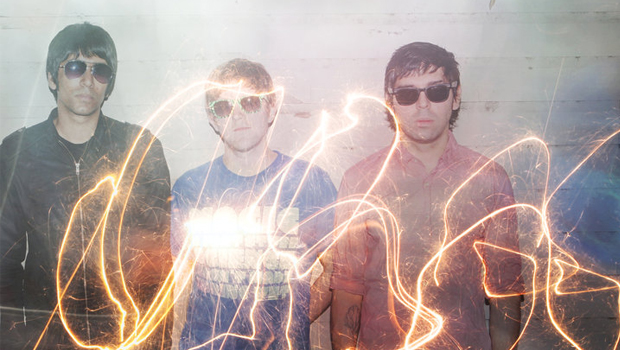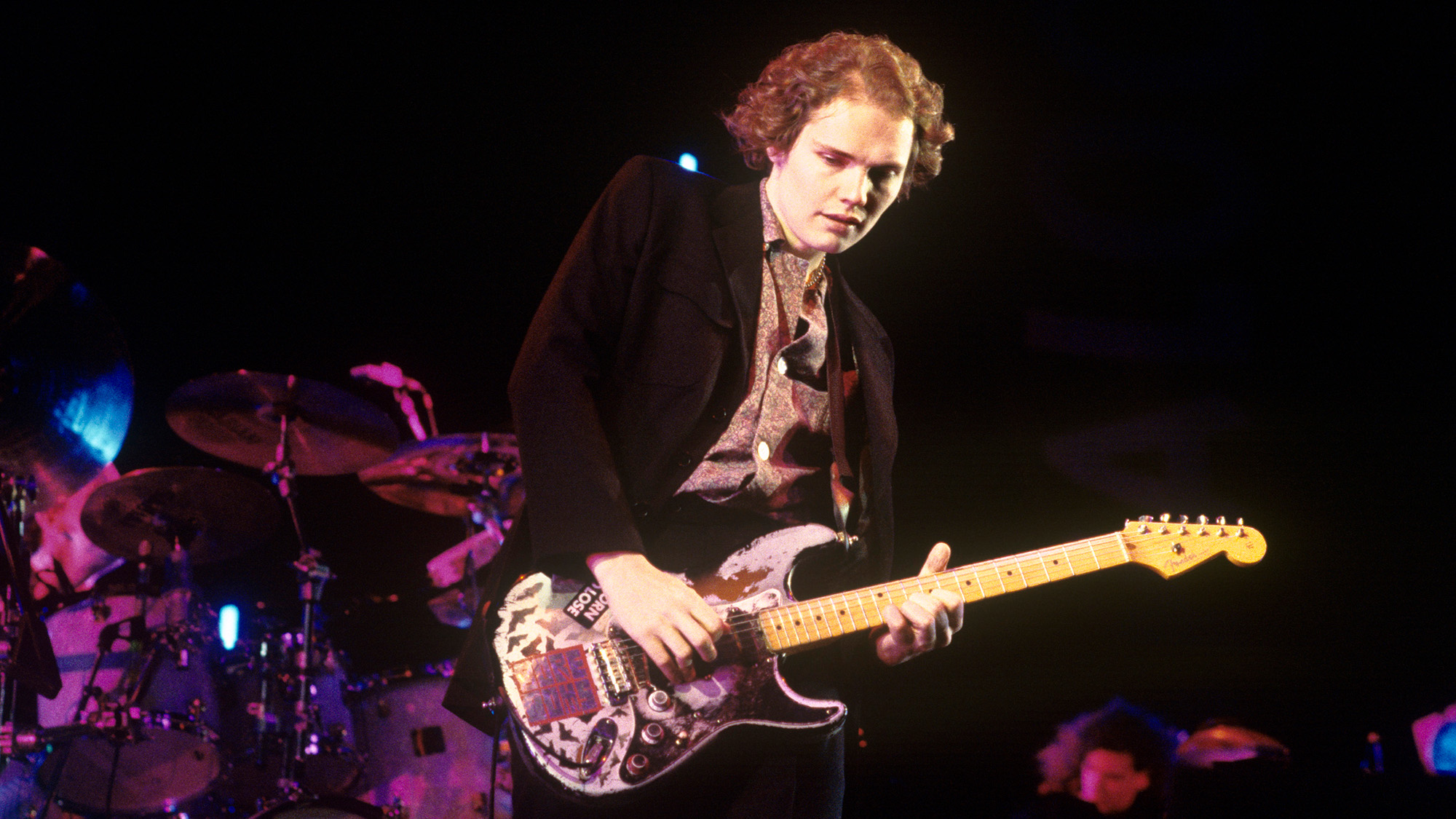Interview: Saves The Day's Chris Conley Talks "Daybreak"

Since their debut in 1998, pop-punk heavyweights Saves The Day have been a band to watch in the modern rock industry. After six records and a rotation of members, the New Jersey natives are releasing their seventh studio album, Daybreak.
But the band has changed more than its members over the years. Saves The Day have changed with the times, evolving their sound with each new release. Their newest album, which hit shelves on September 13, is a far cry from their heavier, punk-based albums like 1999'sThrough Being Cool and 2001's Stay Where You Are.
Lead singer and guitarist Chris Conley talked to Guitar World about how what fans can expect from Daybreak with a new guitarist, their upcoming tour with Bayside and how The Beatles made him a better guitar player.
How long have you been working on the new album?
We took about three or four months to record the album, and we’ve been working on the songs for quite a while. But the writing for the album began in about 2008. Then we did a full run through of the album in 2009 and then we officially recorded it last summer.
I know you guys are going to be touring with Bayside very soon. Have you played with them before?
Yeah, we have. We’ve done a number of festivals with them, and I’ve done a lot of acoustic touring with Anthony Raneri, the singer. We’ve done three or four tours together where it's just us and acoustic guitars. We played with Dustin from Thrice and Matt from The Get Up Kids, and we all just hopped in a van together with our guitars and travelled around playing shows. It’ll be really fun playing full band gigs together
All the latest guitar news, interviews, lessons, reviews, deals and more, direct to your inbox!
What was it like working on this album? Was there anything different about the writing/recording process?
The process was pretty similar to how we’ve worked in the past. But this time we went to a studio near Michigan, which was a big open room with great natural reverb. We hadn’t been to such a big studio in a while, so it was a lot of fun to play around with the acoustics and try different guitar set-ups with different amps. It was fun to explore the sounds of the room.
What kind of equipment did you use when recording?
Our other guitarist Arun uses mainly Fender; he has a Tele and a Jazzmaster. He usually plays through a Fender Super Reverb, and he’s also got a '65 Twin.
I usually play Gibson, I have a 1968 335 that I typically record with, but I also tracked with two different Les Pauls. I wound up using a few different kinds of amps, I used a Bad Cat and the Vox 1830 for most of my guitar parts, and we also used an old Orange and a JMP Marshall. And a lot of different pedals.
I’ve noticed that there’s a lot of different guitar work on this album. There are some songs like “1984” that have very straightforward chords, while “Deranged and Desperate” has that wacky-sounding riff in the beginning.
It was really fun writing the songs. The chords are complex, but the melodies are so simple that it doesn’t take a scientist to enjoy it. We spent a lot of time thinking about how we’re going to arrange the guitar parts. We split up the chords between the two of us so that Arun would be playing a chord that was slightly different from mine, and it made the song start to breathe.
It was a lot fun working together; we were almost able to read each other’s minds. I would show him the basic skeleton of the song, and he was really good at listening to what was missing and filling in the space. That’s the first time we’ve had whammy bar on an album. He’s really unique with the way he plays. It was interesting to hear all the new colors on the song.
I know you guys have been through a rotation of band members over the years. How is the chemistry between you and Arun different from past guitarists?
It’s the best it’s ever been. It feels like I’m playing with my brother. In a creative job sometimes it can be hard to convince others that your ideas are right, but we just seemed to hit it off right away. We’re on the same wavelengths. It was a blast working together.
Do you feel his guitar style has shaped a new sound for the band?
Yeah, I’d say since Arun joined there’s a new element to the sound. His style is so different from mine and from anyone who’s ever been with the band. He has a sort of signature sonically, that you really can’t help but notice when you listen to our last album in relation to the new one. I think our fans are really excited about the new dimension.
It seems like your first few albums were more raw and pop-punkish, while the new one has a lot more intricate guitar work.
Yea, for sure. I discovered The Beatles. When I was growing up, it was mostly punk rock like Jawbreaker and Minor Threat and stuff like that. So earlier music is more simple. And somewhere along the way I wound up with The Beatles. I got really into them and learned much more about the guitar through associating their songs and learning a bunch of jazz chords. So the songwriting evolved quite a lot over the years as I learned more about the instrument.
The new album from Saves The Day, Daybreak, is out now.
